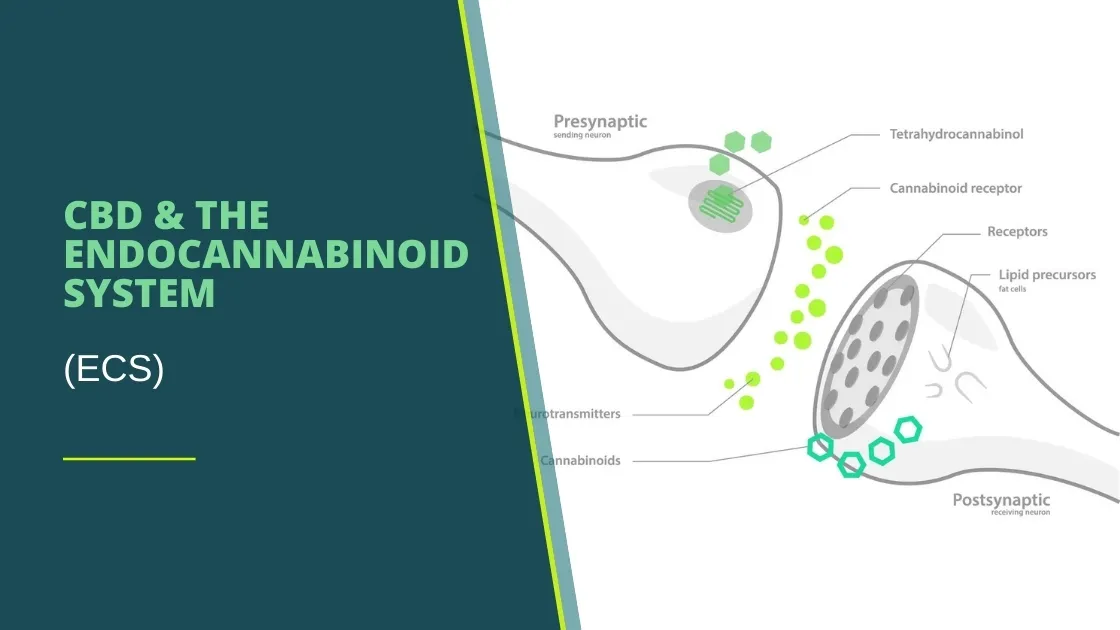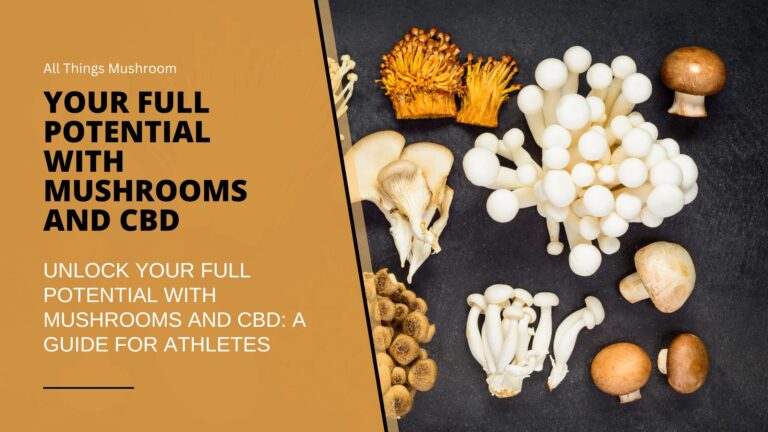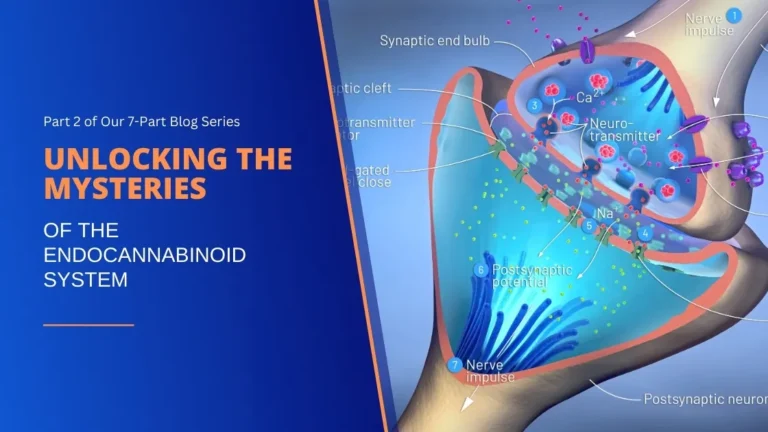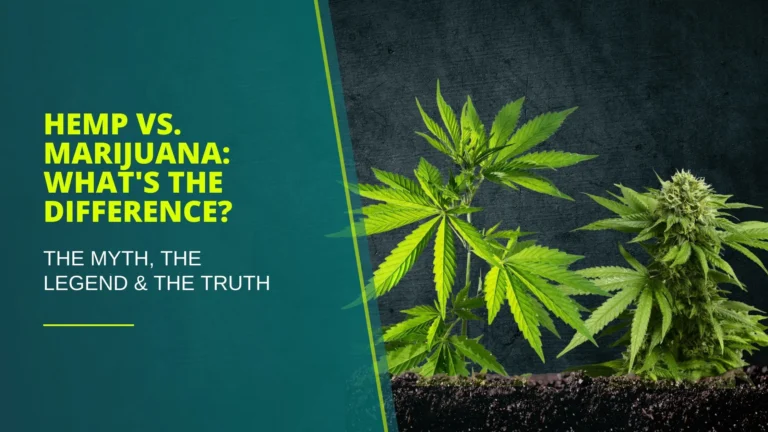Demystifying the Endocannabinoid System (ECS): Your Body’s Master Regulator
The human body is a complex network of interacting systems, each playing a vital role in maintaining health and well-being. In recent decades, science has unveiled a fascinating internal system known as the endocannabinoid system (ECS), often referred to as the body’s master regulator. This post dives deep into the ECS, exploring its components, functions, and potential therapeutic applications.
What is the Endocannabinoid System (ECS)?
The ECS is a biological communication network present throughout the vertebrate body. It acts like an internal conductor, fine-tuning various physiological and cognitive processes to maintain homeostasis (balance). The system is comprised of three key elements:
Endocannabinoids
- These are natural cannabinoid molecules produced by the body on demand. The two main endocannabinoids are anandamide (AEA) and 2-arachidonoylglycerol (2-AG). Interestingly, “anandamide” translates to “bliss” in Sanskrit, hinting at its potential mood-regulating effects.
Cannabinoid Receptors
- These are protein structures located on the surface of cells, acting as docking stations for endocannabinoids. The two main receptors are CB1 receptors, primarily found in the central nervous system (CNS), and CB2 receptors, concentrated in the peripheral nervous system and immune cells.
Enzymes
- These molecules are responsible for the synthesis (creation) and breakdown of endocannabinoids, ensuring a balanced level of signaling within the ECS.
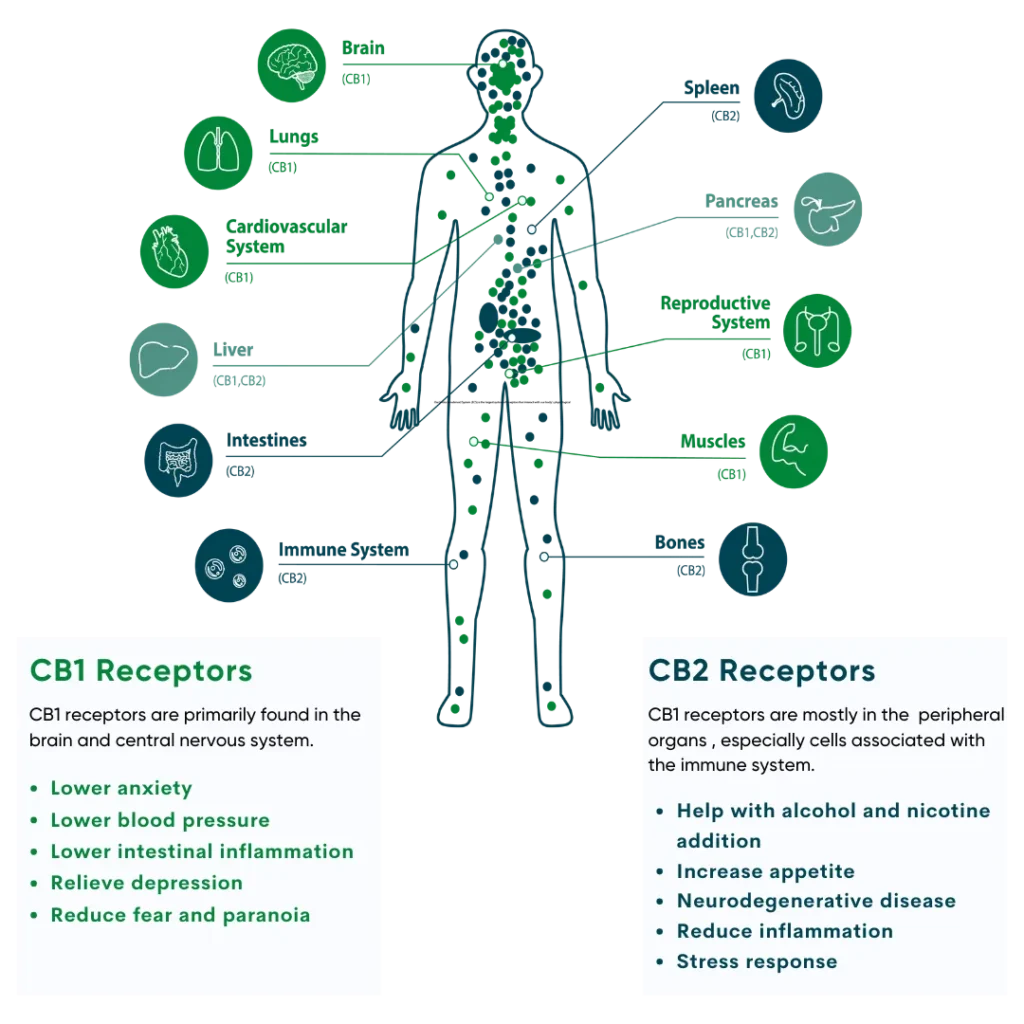
What Does the ECS Do?
The ECS plays a crucial role in regulating a vast array of bodily functions, including:
- Mood and Emotion: The ECS helps modulate mood, anxiety, and stress response. Endocannabinoids interact with CB1 receptors to influence neurotransmitters like serotonin, which significantly impacts emotional well-being.
- Pain Management: The ECS is involved in pain perception and modulation. Endocannabinoids can bind to CB1 receptors in the CNS and peripheral nervous system, potentially reducing pain signals.
- Sleep Regulation: The ECS contributes to regulating sleep cycles. Endocannabinoid activity can promote relaxation and nighttime sleep, while also influencing wakefulness and alertness.
- Appetite and Digestion: The ECS plays a role in appetite control and gut motility. Endocannabinoid signaling can stimulate appetite and influence digestive processes.
- Immune Function: The ECS interacts with the immune system, potentially influencing inflammatory responses and overall immune balance.
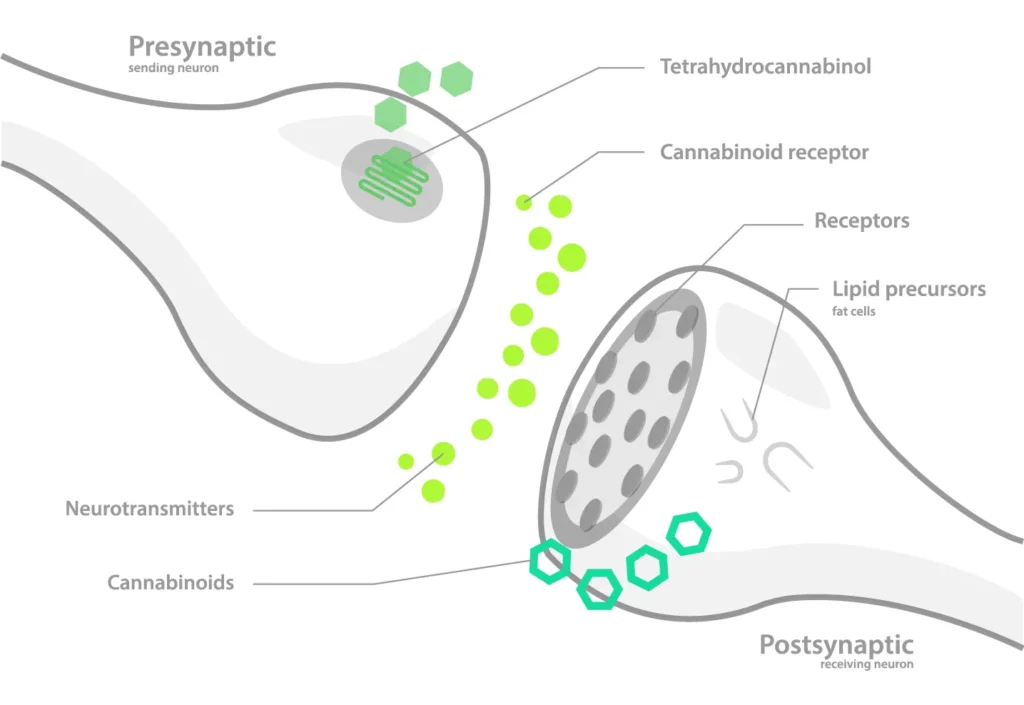
The Link Between Cannabinoids and the ECS
Both CBD (cannabidiol) and THC (tetrahydrocannabinoid) are cannabinoids, naturally occurring chemical compounds found in the cannabis plant. While they share a similar molecular structure, a slight difference in their atomic arrangement leads to vastly different effects. Marijuana, typically high in THC, is known for its psychoactive properties, inducing the “high” sensation associated with cannabis use. CBD, on the other hand, is non-psychoactive and does not produce this effect.
The discovery of the ECS is closely tied to the research on cannabis, a plant containing naturally occurring cannabinoids. The most well-known cannabinoid in cannabis is tetrahydrocannabinol (THC), which can mimic the effects of endocannabinoids by binding to CB1 receptors. This explains the psychoactive effects of THC, as it influences mood, perception, and cognition. In contrast, CBD interacts with the ECS differently, not directly binding to the same receptors but potentially influencing how the body produces its own endocannabinoids. This is why CBD offers various therapeutic benefits without the psychoactive effects associated with THC.
Therapeutic Potential of the ECS
Due to its widespread influence in the body, the ECS is a promising target for therapeutic interventions. Research suggests that manipulating the ECS may offer potential benefits in various conditions, including:
- Chronic pain: Studies indicate that activating the ECS through certain medications or cannabis derivatives may help manage chronic pain.
- Neurological disorders: The ECS is being explored for its potential role in managing symptoms of epilepsy, multiple sclerosis, and neurodegenerative diseases like Parkinson’s and Alzheimer’s.
- Mental health conditions: Research suggests that the ECS may be involved in mood regulation and could potentially offer therapeutic avenues for anxiety, depression, and even addiction.
It’s Important to Note
The ECS is a complex system, and research is ongoing to fully understand its intricacies. While the potential therapeutic applications are vast, more studies are needed to determine the efficacy and safety of manipulating the ECS for specific conditions. Additionally, cannabis use for medical purposes remains a subject of ongoing legal and regulatory discussions.
Optimizing Your ECS Functioning
While some factors influencing the ECS are genetic, there are lifestyle choices that may promote optimal ECS function:
- Healthy Diet: Consuming a balanced diet rich in essential fatty acids may support the production of endocannabinoids.
- Exercise: Regular physical activity can positively influence the ECS and contribute to overall well-being.
- Stress Management: Chronic stress can disrupt the ECS. Techniques like yoga, meditation, and spending time in nature can promote relaxation and potentially support ECS balance.
- Quality Sleep: Adequate sleep allows the body to restore and regulate various systems, including the ECS.
Conclusion
The endocannabinoid system is a fascinating and influential network within the human body. By understanding its role in maintaining health, we can explore potential avenues to optimize its function and unlock its therapeutic potential.
Stay Connected

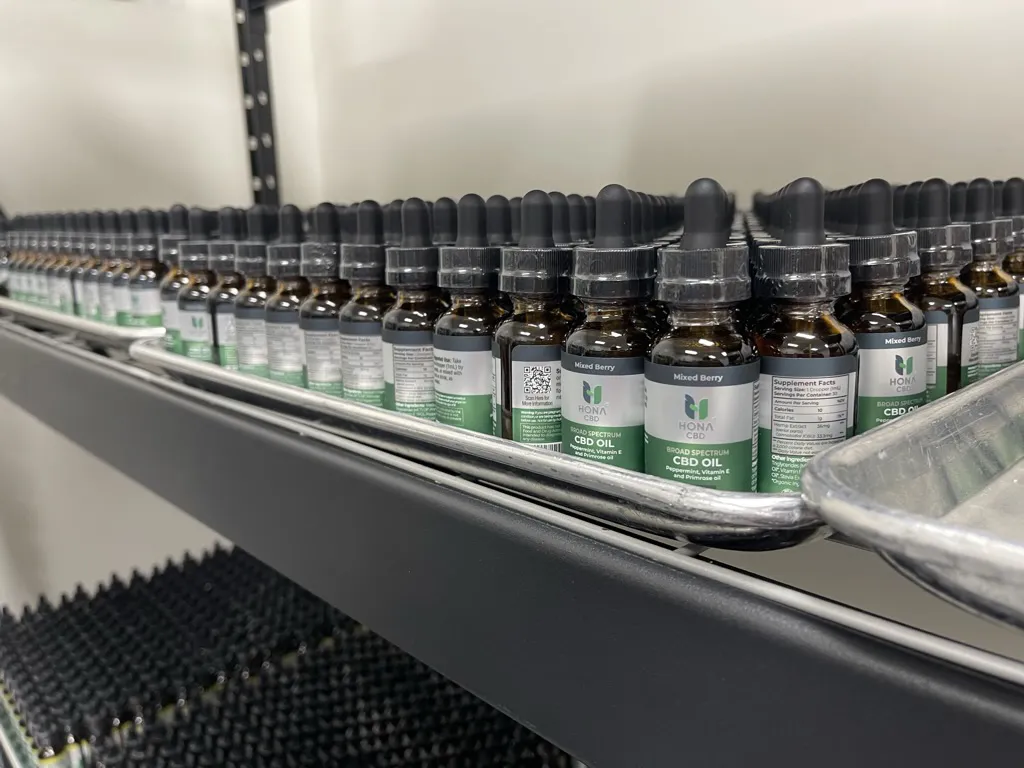



Get in touch today and receive a complimentary consultation.
Sign Up & Stay Connected
Be the first to receive exciting news, educational resources, great tips and special offers.


